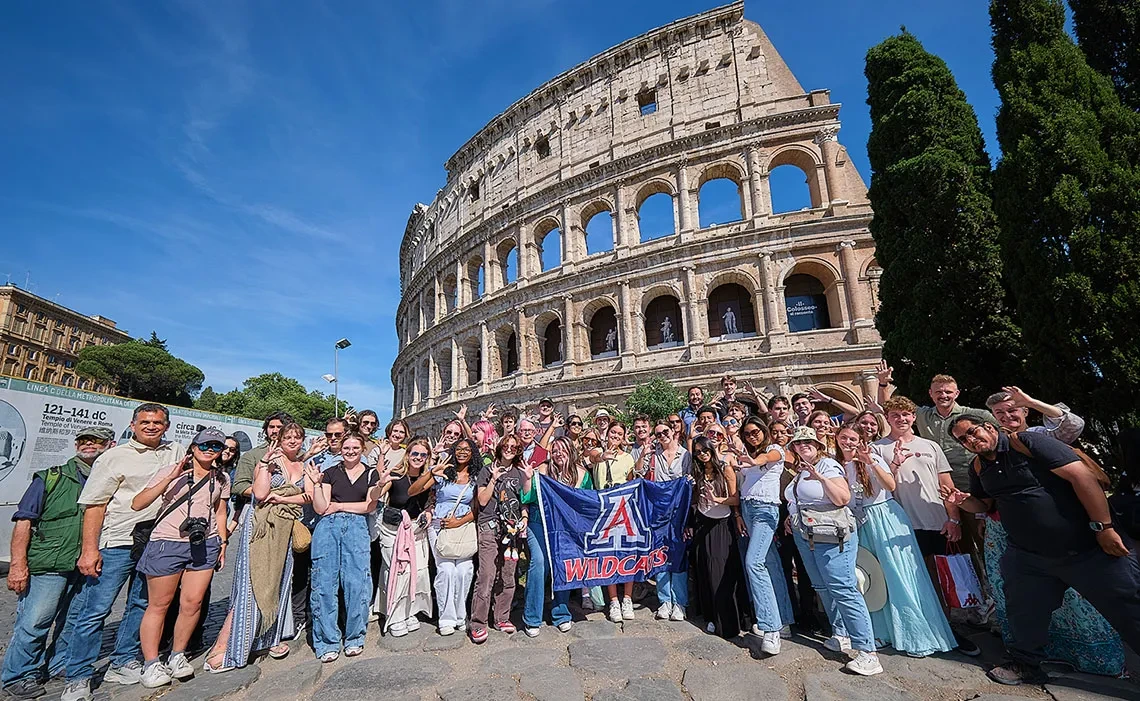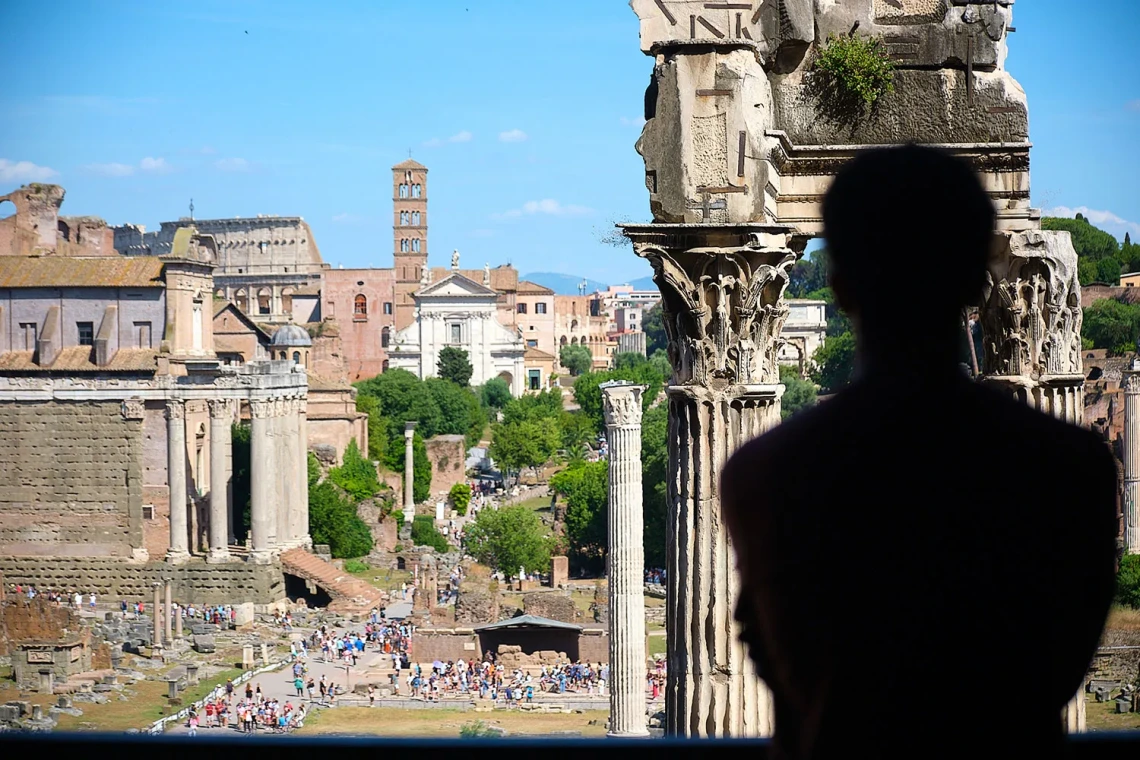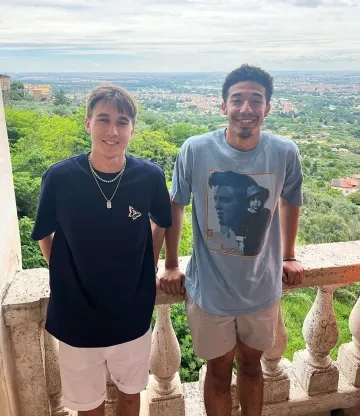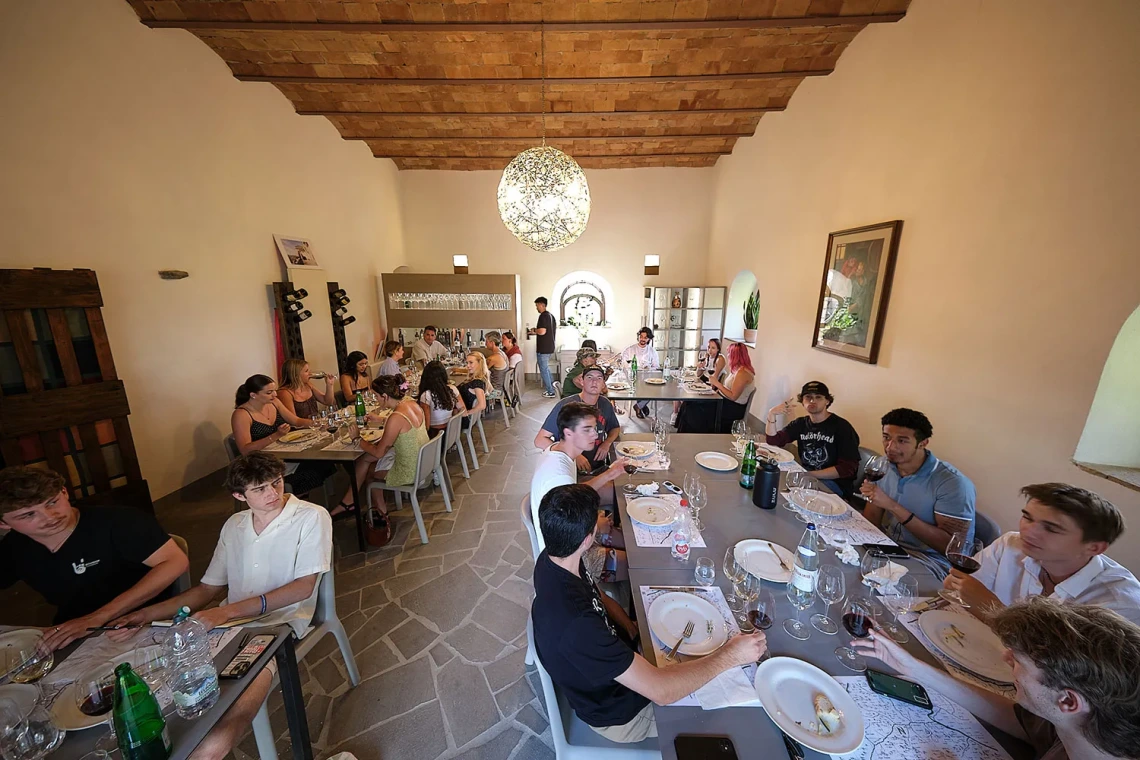Summer Study Abroad in Orvieto, Italy proves transformative for InfoSci students

College of Information Science and other University of Arizona Summer 2024 study abroad students on a field trip to Rome. Photo by Michael McKisson.
This past summer, a group of University of Arizona students embarked on a life-changing study abroad experience in the heart of historic Italy. Hosted by the College of Information Science, the five-week program took place in the enchanting hilltop town of Orvieto, where students explored not only the digital world but also the rich cultural tapestry of Italy.
Led by Michael McKisson, associate professor of practice and director of undergraduate studies at the College of Information Science, the program offered two onsite courses: ESOC 150B: Social Media and Ourselves and ESOC 300: Digital Storytelling and Culture. These classes allowed students to investigate how the digital and physical worlds intersect, all while being immersed in the beauty and history of Italy. In addition to classroom learning, students traveled to iconic destinations like Rome, Florence and Pompei, as well as less-known but still stunning locales like Tivoli, Paestum and Agropoli, applying their newfound skills to document their journeys in real time.

An InfoSci study abroad student observes the activity on a field trip from Orvieto to Rome. Photo by Michael McKisson.
McKisson emphasizes the program’s unique combination of hands-on learning and cultural immersion. “Study abroad opens doors to a new world of experiences,” he says. “By merging the best of history, culture and technology, our students are learning how to become innovative digital storytellers. It’s one thing to learn about social media or storytelling in a classroom in Arizona—it’s another to apply those lessons while walking the cobblestone streets of Orvieto or standing before the Colosseum.”

Communications and Information Science & eSociety student Rhys Rudolph in Italy.
For Rhys Rudolph, a student majoring in Communications and Information Science & eSociety, the program was the perfect opportunity to bring her love of Italy and digital storytelling together. “I decided to study abroad in Orvieto after studying Italian for four semesters,” she says. “I fell in love with the language and culture, and this program allowed me to explore Europe before graduating.”
Rudolph’s time in Orvieto was marked by deep connections with the local community and the chance to explore Italian history alongside her new friends. “My favorite part was the relationships we built with the locals,” she shares. “We became regulars at the same restaurants and gelato shops, and the warmth of the people really made the experience special.”
The program’s courses also pushed Rudolph outside of her comfort zone as she collaborated with peers on digital storytelling projects. “I loved how hands-on everything was,” she says. “Working together with other students in and out of the classroom helped me grow as a videographer and digital creator.”
For Mason Young, an Information Science major, the Orvieto program fulfilled a lifelong dream of traveling to Europe. “Getting six credits in five weeks was a huge incentive,” he explains, “but spending time in Italy was something I’d always dreamed of.”

Information Science major Mason Young (right) with a fellow U of A student in Italy.
Like Rudolph, Young found that the people he met—including fellow students and Orvieto’s residents—were the highlight of his trip. “The friendships I made with locals and other students are what I’ll cherish the most,” he says. “In a world that can feel divided, it was eye-opening to experience another culture and be welcomed with open arms.”
McKisson said the relationships the students made with the locals is the biggest perk of not being based in the larger cities like Rome or Florence, where connecting with locals would be much harder. “Students would often say, after spending the weekend in Rome or Florence, that coming back to Orvieto felt like coming home,” he says.
Young also noted that the group-oriented nature of the courses enhanced his learning experience. “Every class was full of different perspectives, which led to great discussions,” he says. “Our professor did a fantastic job of analyzing everyone’s input, which made for really engaging conversations.”
Both students described the program as transformative. For Rudolph, her time in Italy gave her the chance to slow down and reflect on her future. “I not only learned more about myself as an individual, but I was able to realign my career goals and focus on what I want to achieve after graduation,” she says.
Young agrees, adding that his time abroad taught him the importance of balance: “It’s easy to get distracted when you’re in a place like Italy, but this experience helped me stay focused on why I was there—to learn.”
When asked for advice to future Wildcats considering studying abroad, both students were emphatic: Go for it. “Don’t hesitate,” Young urges. “There’s truly no experience like it.” Rudolph adds, “Do your research, but trust your gut. Taking a GenEd abroad can lighten your major course load and give you the opportunity to study something really interesting.”

University of Arizona summer study abroad students enjoy a meal together in the Italian countryside. Photo by Michael McKisson.
Now that the 2024 Orvieto program has come to a close, McKisson reflects on the lasting impact study abroad has on students. “It’s about more than earning credits—it’s about seeing the world in a new way,” he says. “When our students return home, they’re not just more informed—they’re more inspired. I feel truly lucky to have been a part of something so life changing for the students.”
For these Wildcats, the ancient streets of Orvieto became not just a backdrop for learning, but a canvas for the stories they’ll carry with them long after graduation.
To see more photos from the trip, visit infosci.arizona.edu.

